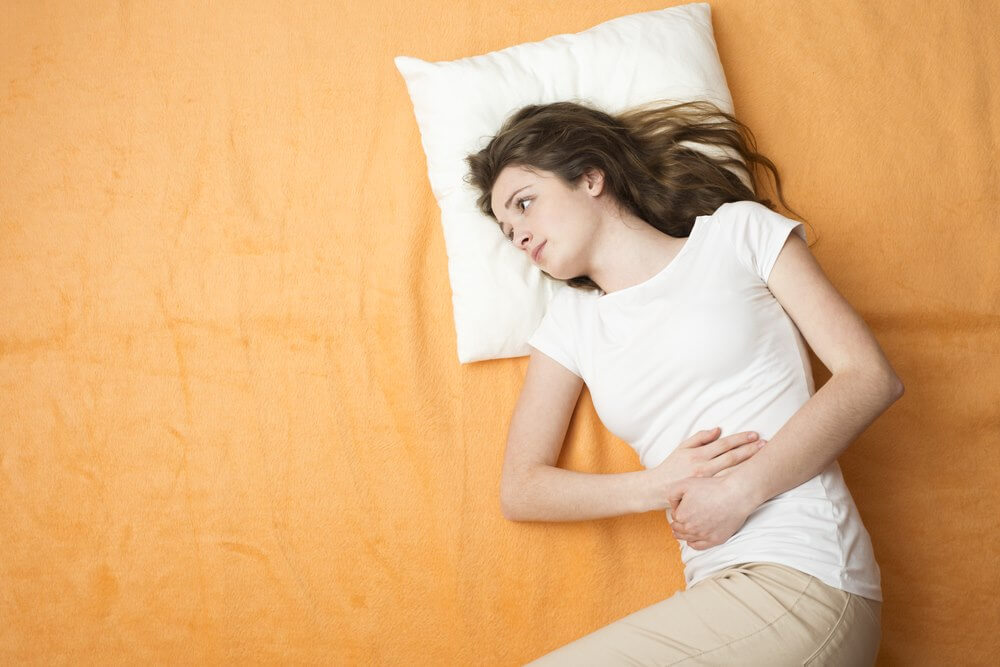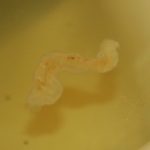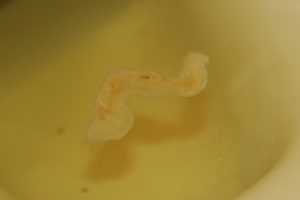Periods, monthly, or menstruation can be defined as the discharge of blood and the uterine mucosal lining through the vaginal opening. The first period marks the onset of puberty in women and is called menarche. It occurs between the ages of 12 to 15 but it may fluctuate with the fluctuating of different hormone levels in different women. It may be as early as 9 or as late as 16 period symptoms but no period. The start of menstruation is considered as day 1 of the menstrual cycle and the average period between the commencement of a menstrual cycle to the beginning of the next one varies with age. It is usually 21-45 days in the young and 21-31 days in adults. The average period is considered to be 28 days in the majority of women.
The woman reproductive cycle consists of two stages occurring simultaneously, and each stage consists of two phases with the average term of 28 days:
- Ovarian cycle
- Follicular phase: days 1-14 (the primary follicles mature into secondary follicles, which if fertilised by sperm at this stage result in pregnancy.)
- Luteal phase: days 15-28 (if the follicle is not fertilised it is changed into corpus luteum which eventually disappears)
- Uterine cycle
- Proliferative phase: days 7-14 (the inner wall of the uterus proliferates and thickens. If the fertilisation of the ova has occurred, it then attaches to the thickened uterine wall)
- Secretory phase: days 15-28 (if fertilisation does not take place, the uterine wall starts to become glandular and loose)
- Menses: days 1-7 (the uterine wall starts sloughing off and this marks the beginning of the new menstruation cycle)
Recommended Reading :
These stages and phases are maintained by various types of hormones.
Many women experience different symptoms before the start of menses. These symptoms are collectively referred to as premenstrual syndrome or PMS. They vary between women and are usually resolved with the start of menses. The underlying cause is unknown but many factors are known to affect PMS e.g. alcohol, caffeine or a high salt diet may worsen PMS. It occurs during the luteal phase of the menstrual cycle- that is why the hormonal changes experienced by women before, during and after menstrual cycle are believed to be the underlying mechanism of PMS. It does not occur during pregnancy or after menopause. More than 200 symptoms are said to be associated with PMS but the most common ones are:
-
PHYSICAL SYMPTOMS:
- Acne
- Breast tenderness and swelling
- Aching of muscles
- Pain in joints
- Weight gain
- Bloating
- Cravings for sweets
- GIT disturbances
- Lethargy
- Sleep disturbances
- Headaches etc.
Period Symptoms But No Period
Apart from the physical symptoms women also experience various emotional and behavioural symptoms, the most common of which are:
- Increase in rage
- Social withdrawal
- Increased depression
- Irritation
- Lack of concentration and alertness
- Mood swings
- Premenstrual dysphoric disorder (PMDD), in severe cases
- Menstrual psychosis (very rare)
While most women experience only some of the symptoms mentioned above with varying frequency, menstrual cramps (dysmenorrhea) is a symptom which is believed to be experienced by the majority of women. Dysmenorrhea occurs due to ischemia (by the constriction of spiral arteries) and uterine contractions (by the release of prostaglandins) which help in discharging of the inner lining of the uterine wall.
Pms is followed by menses but there are some cases in which women do not get periods even after the PMS. This is a worrisome event for women which can be various conditions. If a woman is sexually active, pregnancy is considered to be the number one cause of a late or no period.

- PREGNANCY: fertilisation of an ova occurs during the ovulatory phase, usually around the 14th day of the menstrual cycle. After fertilisation, the ova starts releasing hormones which maintain the integrity of the uterine wall hence menses do not occur until after the woman has given birth. So a missed period with the experience of PMS is usually the first sign of pregnancy which can be confirmed by a pregnancy test.
If the pregnancy test comes back negative, other physiological causes may be considered which disturb a woman’s menstrual cycle including:
- BREASTFEEDING: during breastfeeding, high levels of prolactin are formed in a mother’s body. Prolactin not only enhances the production of milk, but it also suppresses the hormones which are responsible for menses. Thus during breastfeeding, a woman may get no or late periods.
- ANXIETY: when a person gets anxiety or stress, the body releases cortisol, a hormone which is formed from progesterone. Progesterone is responsible for the thickening of the endometrium to ready the uterus for implantation. Thus, it is also a cause of no or late menses.
- DRUGS: contraceptives, chemotherapeutic drugs, antidepressants, thyroid medications and various other types of drugs can result in late or no menses.
- HORMONAL DISTURBANCES: premenopausal women ( the period before menopause) may experience late or no periods because of the disruptions in hormones.
- ADJUSTMENT TO An NEW CLIMATE
Apart from these physiological causes there are various pathological conditions because of which a woman experiencing PMS does NOT get menses:
- POLYCYSTIC OVARIAN SYNDROME: this condition is accompanied by various abnormalities of menstruation including oligomenorrhea and amenorrhea. Because of the hormonal disturbances, a person can also develop hirsutism in this disease.
- ANEMIA: If a woman experiences massive blood loss due to trauma or she has anaemia because of some other underlying disease, she may miss her periods
- ADHESIONS IN UTERUS AND CERVIX: surgeries e.g. C-section, hysterectomy, abortion, etc. or inflammatory conditions e.g. PID, endometritis may cause scars to form in the uterus due to which the uterus cannot prepare itself for implantation hence leads to no menstruation. Similarly, injuries in the cervix cause mechanical obstructions so menses cannot occur.
- WEIGHT LOSS: when a woman loses weight rapidly, there is a dramatic decrease in lipocytes which serve as the storehouse of hormones important for menses. Hence PMS but no menses.
- THYROID PROBLEMS: pathology of thyroid can also result in PMS but no menses.
Most women experience late or missed periods in their life occasionally which is not such a big cause for concern but a woman experiencing repeated bouts of PMS with no periods could have an underlying abnormality and she should contact a physician as soon as possible.










